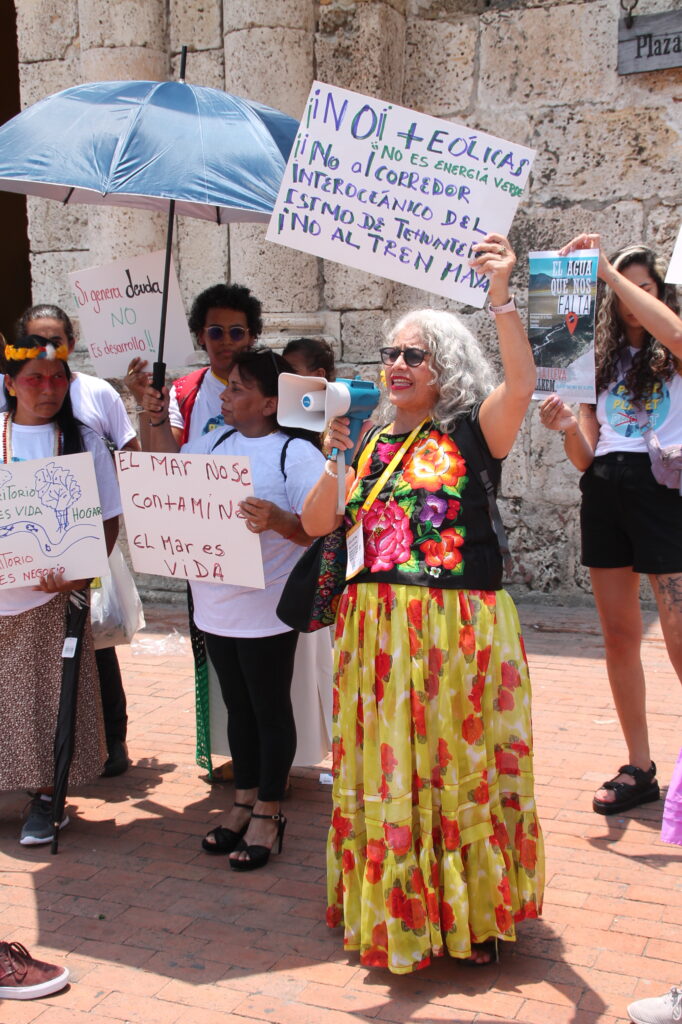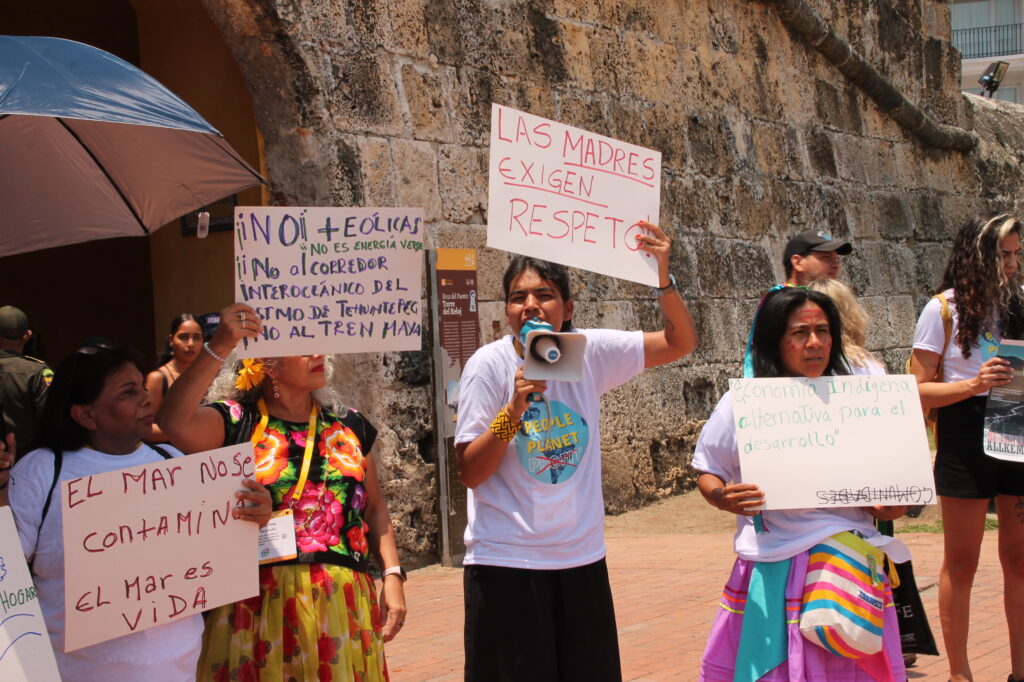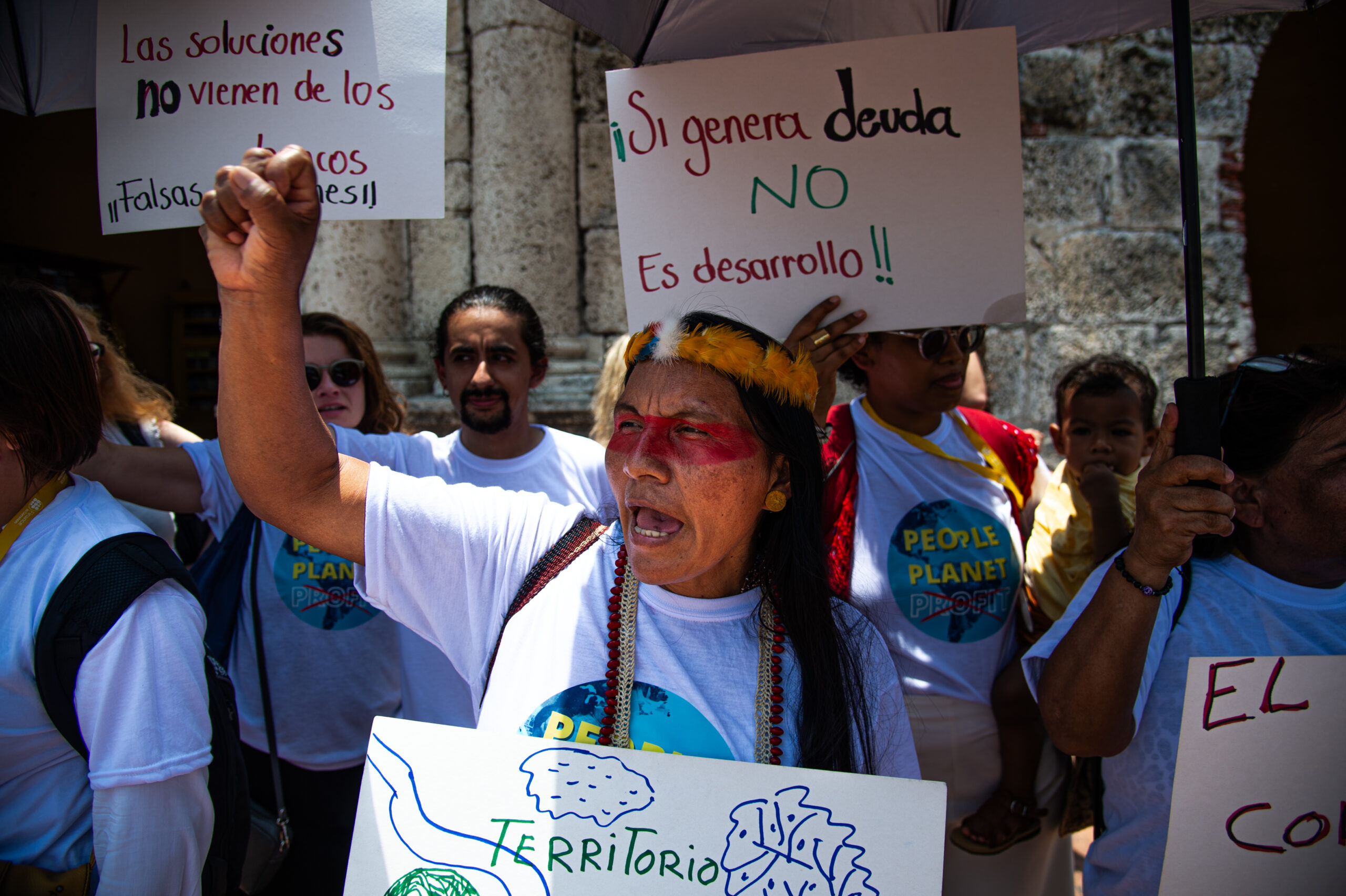By: Josh Klemm, Co-Executive Director of International Rivers
Earlier this month, I had the chance to attend the fourth annual Finance in Common (FIC) Summit in Cartagena, Colombia. A relatively new phenomenon, the Summit brought together over 500 public development banks from all over the world who together represent tens of billions of dollars in public lending, ostensibly for development.
The event also saw a small but vocal contingent from global civil society, led by the Coalition of Human Rights in Development of which International Rivers is a member, committed to elevating causes of the rights of Indigenous Peoples and traditional communities, sexual minorities, environmental defenders, and activists working to protect rivers from destructive dams. This represented an important counterpoint to the self-congratulation of the banking community with mantras of leveraging “billions to trillions” and “crowding-in the private sector.”
Unfortunately, the event provided limited opportunities for direct engagement during the official panels where much of the talk centered on falling short on the Sustainable Development Goals (SDGs) – so much more the pity because of the wealth of experience among the civil society organizations present. In a civil society side event, we heard from Yannia Sofia Garzón from the Proceso de Comunidades Negras en Colombia who shared an example of the Salvajina Dam in Colombia which was built over objections of communities, and led to widespread impoverishment.
“Communities have capacity, expertise and knowledge to know what they want, and their wishes must be respected.”
Yannia Sofia Garzón
These points were reiterated during a plenary event on human rights, which did feature diverse voices from Indigenous communities, human rights organizations, the International Labor Organization, and one development bank. Activist Gerald Kankya from Uganda insisted that “we are not against development, we are against a type of development that excludes us.” Ecuadorian Indigenous Waorani activist Alicia Cahuiya pointed out the inherent contradiction of public funds devoted to development being used to finance oil pipelines that have spilled oil on and polluted Indigenous territories.
The CSOs also took to the streets outside the summit where they shared their powerful messages, their stories, and their hopes for a world where local communities can decide how they build their own future.



Yet, this ability to speak truth to power stood in sharp relief to the plight of environmental defenders around the world. As advocates raised during the summit, public development banks have a duty to ensure space for civil society in a global situation where civil society is increasingly under threat around the world. Civil society faces a growing risk of harassment, imprisonment on trumped up charges, even violence and assassination. Unfortunately, we have seen development banks unwilling to insist on basic freedoms and protection of civil society. This is exemplified in Vietnam, where climate advocates who prompted Vietnam’s transition away from coal have been imprisoned, and institutions like the International Finance Corporation and the Asian Development Bank are playing a key role in the energy transition negotiations. The FIC Summit showed that banks must play an influential role in ensuring and safeguarding civic space, and they need to step up to show their commitment is genuine.
Featured Photo: Indigenous protestors outside the Finance in Common Summit, Cartagena, Colombia

